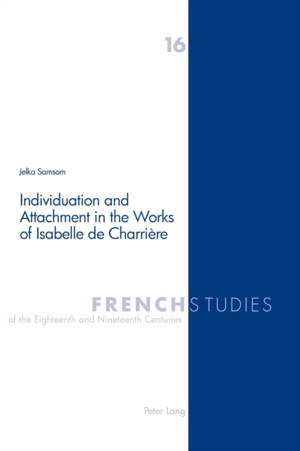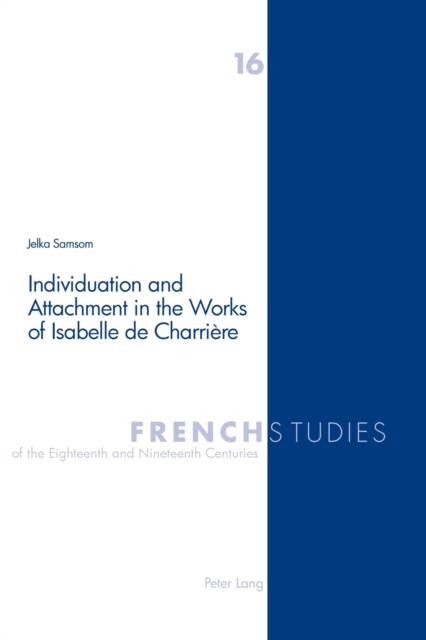
- Afhalen na 1 uur in een winkel met voorraad
- Gratis thuislevering in België vanaf € 30
- Ruim aanbod met 7 miljoen producten
- Afhalen na 1 uur in een winkel met voorraad
- Gratis thuislevering in België vanaf € 30
- Ruim aanbod met 7 miljoen producten
Zoeken
Individuation and Attachment in the Works of Isabelle de Charrière
Jelka Samsom
€ 81,45
+ 162 punten
Omschrijving
The novels published by Isabelle de Charrière before the French Revolution offer a perceptive account of the psychology and the social climate of the late eighteenth century. The anti-Freudian psychoanalysis of the neurologist and psychiatrist Heinz Kohut (1913-81) is used in this study as a means of developing an awareness of the position of the fictional characters. Feminist and Freudian readings of Charrière's novels of the 1780s have stressed the 'closed' deterministic atmosphere of contemporary society; this new study emphasises what can be called the 'modern' side of the novels: patriarchal society and individual needs confront each other and allow the relationships to be seen in a new light. By means of Kohut's notion of 'selfobject' a rich insight is gained into the complex relationships described by Isabelle de Charrière.
Specificaties
Betrokkenen
- Auteur(s):
- Uitgeverij:
Inhoud
- Aantal bladzijden:
- 218
- Taal:
- Engels
- Reeks:
- Reeksnummer:
- nr. 16
Eigenschappen
- Productcode (EAN):
- 9783039101870
- Verschijningsdatum:
- 23/03/2005
- Uitvoering:
- Paperback
- Formaat:
- Trade paperback (VS)
- Afmetingen:
- 152 mm x 229 mm
- Gewicht:
- 299 g

Alleen bij Standaard Boekhandel
+ 162 punten op je klantenkaart van Standaard Boekhandel
Beoordelingen
We publiceren alleen reviews die voldoen aan de voorwaarden voor reviews. Bekijk onze voorwaarden voor reviews.











